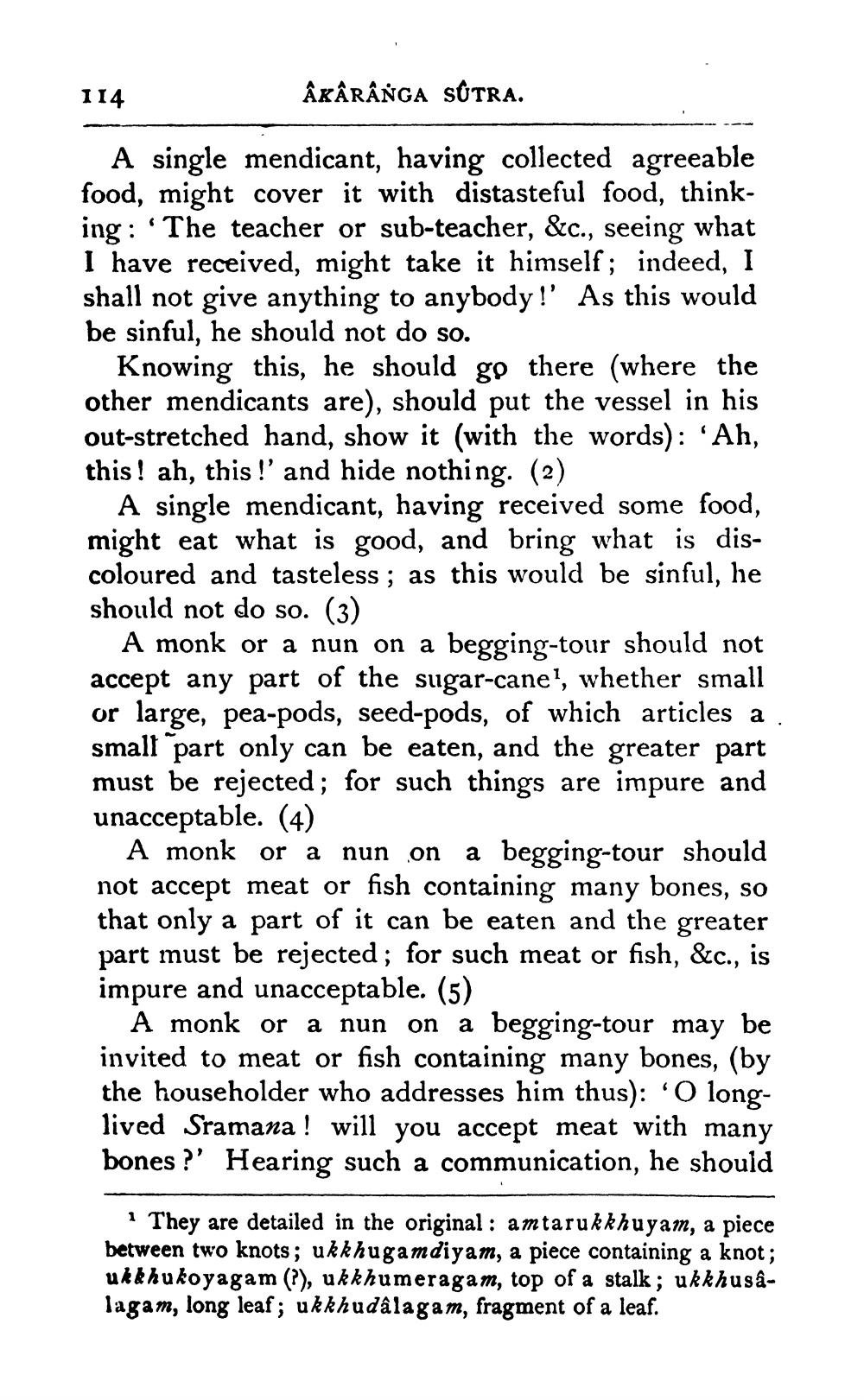________________
114
ÂKÂRÂNGA SÛTRA.
A single mendicant, having collected agreeable food, might cover it with distasteful food, thinking: 'The teacher or sub-teacher, &c., seeing what I have received, might take it himself; indeed, I shall not give anything to anybody!' As this would be sinful, he should not do so.
Knowing this, he should go there (where the other mendicants are), should put the vessel in his out-stretched hand, show it (with the words): 'Ah, this! ah, this!' and hide nothing. (2)
A single mendicant, having received some food, might eat what is good, and bring what is discoloured and tasteless; as this would be sinful, he should not do so. (3)
A monk or a nun on a begging-tour should not accept any part of the sugar-cane1, whether small or large, pea-pods, seed-pods, of which articles a small part only can be eaten, and the greater part must be rejected; for such things are impure and unacceptable. (4)
A monk or a nun on a begging-tour should not accept meat or fish containing many bones, so that only a part of it can be eaten and the greater part must be rejected; for such meat or fish, &c., is impure and unacceptable. (5)
A monk or a nun on a begging-tour may be invited to meat or fish containing many bones, (by the householder who addresses him thus): 'O longlived Sramana! will you accept meat with many bones?' Hearing such a communication, he should
1 They are detailed in the original: amtarukkhuyam, a piece between two knots; ukkhugam diyam, a piece containing a knot; ukkhukoyagam (?), ukkhumeragam, top of a stalk; ukkhusâlagam, long leaf; ukkhudâlagam, fragment of a leaf.




